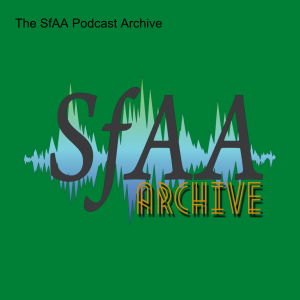
Tuesday Mar 19, 2024
Native Americans’ Environmental Justice: Expanded in Scope and Time
Native Americans’ Environmental Justice:
Expanded in Scope and Time
CHAIR: STOFFLE, Richard (BARA, U Arizona)
STOFFLE, Richard (BARA, U Arizona) and VAN
VLACK, Kathleen (Living Heritage) Native Americans’
Environmental Justice Expanded in Scope and Time
BOCHNIAK, Victoria (UMass) Settler Colonial
Legacies of the Second Crow Agency (1875-1884)
BRUNO, Jasmine and GALVIN, Kathleen (CO State U)
Using Qualitative Methods to Advance Conservation
Strategies
HAAS, Caitlin, DALEY, Sean M., GOECKNER, Ryan,
and, MAKOSKY DALEY, Christine (Lehigh U) American
Indian and Alaska Native COVID-19 Knowledge,
Attitudes, Beliefs, and Behaviors During the
Pandemic
STONER, Denise (NAU) A Study of Food Programs
and People in Flagstaff, Arizona from an Indigenous
(Navajo/Eastern Shawnee) Perspective
MCCUNE, Meghan (NMU) and OLSON, Ernie (Wells
Coll) Anthropology in the Weeds: Gardening as
Decolonization in Central New York
STOFFLE, Richard (BARA, U Arizona) and VAN VLACK, Kathleen (Living Heritage)
Native Americans’ Environmental Justice Expanded in Scope and Time.
Environmental Justice was initially defined by Bunyon Bryant at the Institute
for Social Research at the University of Michigan. His research, centered
largely in Detroit, identified special and unequal impacts absorbed by African
Ancestry people due to development projects like urban renewal and highways.
He significantly encouraged the addition of another Environmental Impact
Assessment variable which has lasted until now as a key factor in project
decisions. It is also key in the management of interconnected social and natural
environments. This paper is based on research about the inter/relationship of
Native Americans and natural resource managers. Native people struggle to
ensure their EJ issues are considered in EIS and management because these are
different than those which originally were used to define EJ.
Session took place in Cincinnati, OH at the 83rd Annual Meeting of the Society for Applied Anthropology in March 2023.
No comments yet. Be the first to say something!